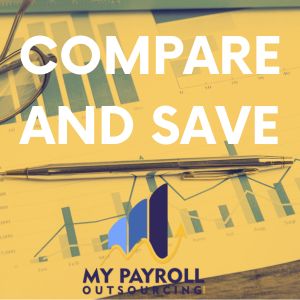
Payroll Outsourcing for Manufacturing
Payroll Outsourcing for Manufacturing Businesses: A Comprehensive Buyer’s Guide
Payroll is an essential function for any business. However, it can be a complex and time-consuming task, especially for manufacturing businesses that often deal with a large number of employees, shift work, overtime, and various levels of wages and salaries. That’s where payroll outsourcing comes in, providing a solution to streamline the process, reduce administrative burden, and ensure compliance with payroll regulations.
This guide provides an overview of payroll outsourcing, its advantages, and essential features to look for when choosing a service for your manufacturing business.
Advantages of Payroll Outsourcing
- Time Saving: Outsourcing payroll frees up time that can be used to focus on core business activities. Payroll processing requires a lot of time and attention to detail; outsourcing can take this burden off your hands.
- Reduced Costs: Overhead costs related to payroll processing could be considerably reduced when outsourced. With an external provider, businesses only pay for the services they require, leading to potential savings.
- Access to Expertise: Payroll companies have the expertise to handle complex payroll regulations and stay updated on changing labor laws. This reduces the risk of penalties and ensures compliance.
- Enhanced Security: Payroll processing involves handling sensitive data. Professional payroll providers often have high standard security measures in place to protect this data.
- Avoiding Technology Hassles: Outsourcing companies use the latest payroll software and technologies. This means you don’t have to worry about keeping your software up-to-date or dealing with technical issues.

Features to Look for in a Payroll Outsourcing Service
- Comprehensive Services: Look for a service provider that offers a wide range of services such as tax filing, employee self-service portals, direct deposit, benefits administration, and reporting capabilities.
- Scalability: As your business grows, your payroll needs will change. Ensure the provider can handle your current size and has the capacity to grow with you.
- Industry Experience: Choose a provider with experience in the manufacturing industry. They’ll understand the unique challenges you face, such as managing shift work and overtime.
- Customer Support: You want a company that’s available when you need them. Look for 24/7 support and multiple ways to get in touch, such as phone, email, and live chat.
- Integration Capabilities: The payroll system should seamlessly integrate with your existing HR systems, time tracking, and accounting software.
- Compliance Expertise: The provider should be knowledgeable about local, state, and federal payroll tax laws to help you stay compliant.
- Security Measures: The provider must have robust security measures in place to protect your sensitive data.
Key Considerations Before Outsourcing
- Assess Your Needs: Understand your current payroll challenges, define your objectives, and identify your needs to find a provider that meets these requirements.
- Cost-Benefit Analysis: Weigh the costs of outsourcing against the cost of handling payroll in-house, including software, labor, and any potential penalties for non-compliance.
- Provider Reputation: Research potential providers, read reviews, and consider their track record and reputation in the industry.
- Data Access: Ensure you’ll still have access to your payroll data, even if it’s being managed by an external provider.
- Service Agreement: Read the terms and conditions of the service agreement carefully. Understand the scope of services, fees, data ownership, termination clauses, and liability issues.
- Transition Process: Enquire about the transition process. A good provider will assist with the transition to make it as seamless as possible.
Outsourcing payroll for a manufacturing business can bring significant benefits, such as time savings, cost reductions, and access to expert knowledge. However, it’s crucial to select a provider that understands your business’s unique needs. By carefully considering the points mentioned in this guide, you can make a well-informed decision and select the best payroll outsourcing service for your business.

The Outsourcing Process
Once you’ve decided on a provider that fits your business needs, you’ll undergo a transition process to set up the new system. Here’s a typical sequence of steps:
- Data Collection: Gather all the necessary information, such as employee data, previous payroll records, tax information, and any other relevant details.
- Service Setup: Your provider will set up your service, taking care of all the technical aspects. They should provide training or resources to help you understand how to use the system effectively.
- Testing: Before the system goes live, it’s critical to conduct tests to ensure everything works correctly. Look for any errors or issues that need to be addressed.
- Go Live: Once testing is complete and all issues are resolved, the system can be activated. The provider should offer support to ensure a smooth transition.
- Regular Updates and Support: Keep in regular contact with your provider to ensure everything runs smoothly. They should provide updates when necessary and be available to answer any questions or address any issues.
Tips for Successful Payroll Outsourcing
- Communication is Key: Maintain clear and open communication with your provider. Make sure they understand your business needs and expectations.
- Stay Involved: While the provider handles the bulk of the work, it’s still important to stay involved in the process. This will allow you to spot any potential issues early and ensure the service is meeting your needs.
- Regular Auditing: Regularly audit your payroll process to verify accuracy and compliance. This can help identify any discrepancies or issues that need to be addressed.
- Plan for Change: When transitioning to a new system, there may be a learning curve for your team. Plan for this and ensure everyone is adequately trained and comfortable with the new system.
- Feedback Loop: Establish a feedback loop with your provider. Your experiences can help them improve their services, and their insights can help you optimize your payroll process.
Payroll outsourcing for manufacturing businesses can streamline your operations and offer numerous benefits. By using this guide as a resource, you’ll be well-equipped to find the right service that suits your business needs, ensuring a smooth payroll process that allows you to focus more on your core business operations.